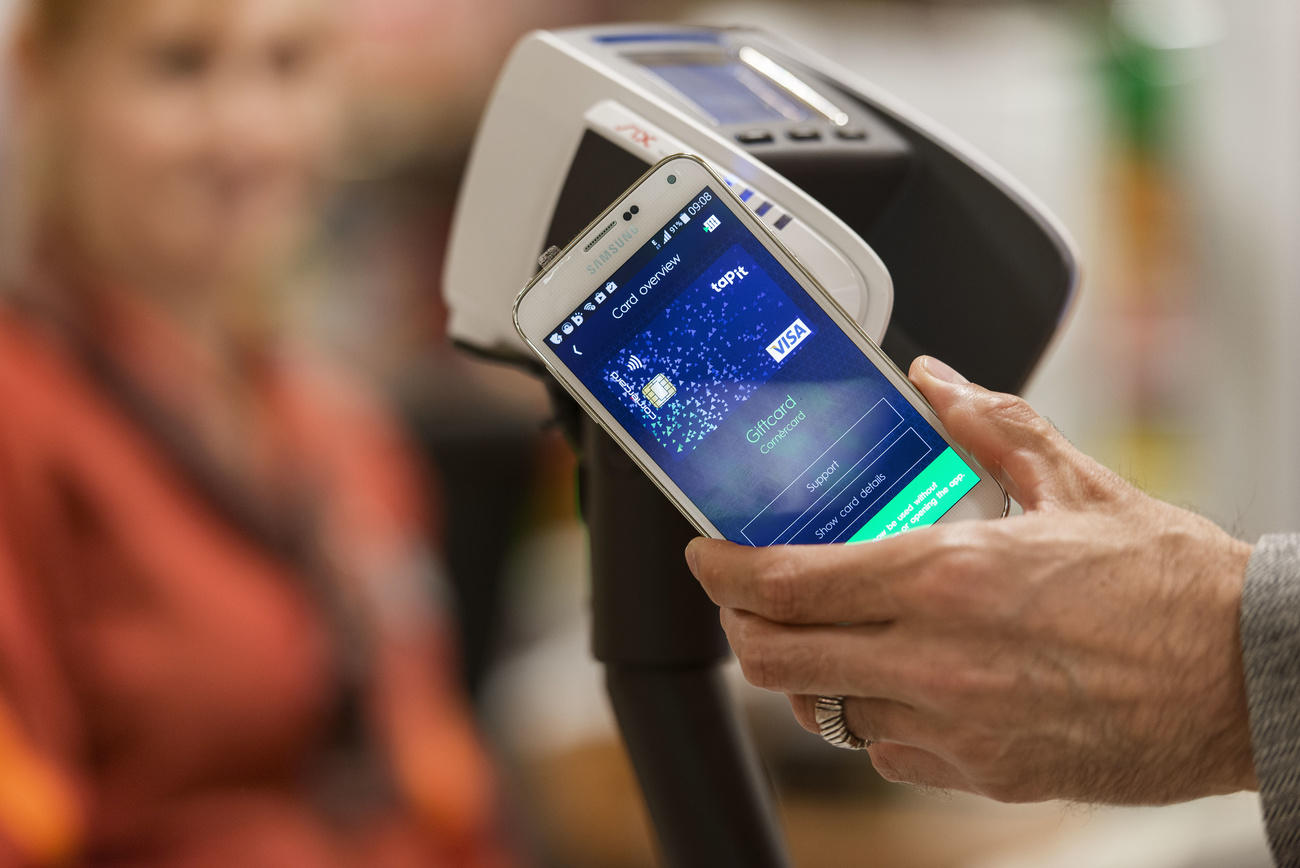
Electronic challenge to cash grows in Switzerland

Swiss consumers are slowly embracing new forms of electronic payments technology, but it may still be some time before they wean themselves off cash, particularly for smaller purchases.
These are the findings of the latest annual Swiss Payment MonitorExternal link that asks 1,000 people exactly how they part with their hard-earned money. The results show more people using contactless debit cards – 54% compared with 34% last year.
Contactless debit cards were introduced in Switzerland in 2015 and now account for 71% of all such cards issued. Contactless chips can be found in 95% of credit cards, having made their Swiss debut in 2007.
The CHF1 billion ($1 billion) barrier spent with contactless debit cards was broken for the first time in Switzerland in May. But this still represents only a quarter of the total volume of money spent in stores, restaurants and the like with this type of plastic.
Cash remains king among consumers for items valued at CHF20 or less. Unlike Sweden, which some observers predict will be cashless by the end of the next decade, Switzerland remains wedded to its physical currency.
“It’s still the social norm to use cash. People think it’s expected of them when they buy small-value items,” said Sandro Graf from the Swiss Payment Research CenterExternal link at the Zurich University of Applied SciencesExternal link, and one of the survey’s authors.
Graf believes Switzerland occupies a mid-table position in Europe in terms of acceptance of electronic forms of payment.
Security concerns
Another issue is security, with some people afraid that electronic payment systems will expose them to fraud or having their data mis-used. This fear appears to be undermining confidence in using payment apps on mobile devices.
“People are naturally suspicious of new methods,” Graf said. “But in general people become more positive once they gain experience at using them.”
Indeed, the majority of respondents to the Swiss Payment Monitor said they would likely consider greater use of new types of mobile payments in future.

In compliance with the JTI standards
More: SWI swissinfo.ch certified by the Journalism Trust Initiative






























You can find an overview of ongoing debates with our journalists here . Please join us!
If you want to start a conversation about a topic raised in this article or want to report factual errors, email us at english@swissinfo.ch.